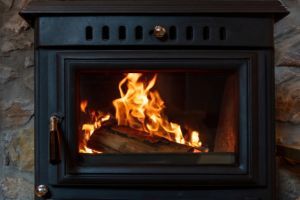Wondering just how the updated stove burner legislation in Scotland impacts you? In this article, Adam Oldfield, Director of the award-winning stove and fireplace retailer StovesAreUs, is here to tell us everything we need to know.
Read our latest article on the Scotland wood burner ban here, with an update to the NBHS to become law on 1st January 2025.

Since the 1st of April 2024, some households in Scotland have been banned from using wood burners in their homes. This new legislation has been met with mixed responses from homeowners, with some praising the law, claiming it has environmental benefits, and others criticising it, with concerns over how it will impact those living in more rural areas.
However, it’s important to note that this newly introduced legislation does not impact all Scottish households, and many across the country are still free to use their log burners. To help you get a full understanding of just how this law impacts you, I’ve put together a full lowdown on everything Scots need to know about the changes in the legislation, from who it impacts to alternative heating solutions.
What are the changes in the laws relating to log burners?
The law changes brought in on the 1st of April under the New Build Heat Standard (NBHS) prohibit people living in new builds from using wood-burning stoves and other “direct emission heating systems” as their primary heating source. This means that not only are new wood burning stoves prohibited from new builds, but other wood burning heaters too, such as fireplaces.
It’s worth noting however that there are some exemptions taken into account with this law. The NHBS legislation doesn’t apply to those converting or extending a property which was built under a warrant applied for before the law came into practice on the 1st of April 2024. Log burners are also permitted in new builds if they are being installed as the building’s emergency heating system, or if they were installed with the sole purpose of frost protection.
Who is impacted by these new laws?

As already mentioned, this new legislation only applies to new buildings with building warrants which were applied for after the 1st of April 2024. This means that those who already had a wood burning stove or fireplace before this date and those living in properties which were constructed under a warrant which was applied for before the 1st of April this year won’t be impacted by this new law.
Why are these laws being introduced?
The legislation has been introduced in a bid to combat climate change. According to the Scottish Government, homes account for 13% of the country’s total greenhouse gas emissions, which is why the government has been looking for ways to help and encourage households across the country to reduce their carbon emissions.
However, the new legislation has been criticised by many for how it will impact those living in rural areas. Many households in remote areas of Scotland rely on wood burning heating solutions during power cuts, which can be relatively common in bad weather in some areas. Many also feel that there are more effective ways for the government to help households reduce carbon emissions and believe the negatives of these new laws outweigh the benefits.
The potential good news for those who do rely on these forms of heating is that the Scottish government intend to review this legislation after the backlash it has faced (BBC News). While we cannot speculate when this review may happen, especially with a general election on the way, many rural homeowners will no doubt want this evaluation to be high up the next government’s agenda.
Wood burning stove alternatives

If you are impacted by these new laws, or even if you want to future-proof your home in case this legislation expands to include more building types in the future, there are a number of alternatives for you to consider. Fortunately, there are many stylish and practical heating options available on the market. Electric stoves and fireplaces are popular choices amongst those looking for the aesthetic appeal of a wood burner without being impacted by these new laws. They are also a good choice for new builds, which are often built without chimneys, plus they are an efficient heating solution.
For those living in rural areas often impacted by power outages, bioethanol stoves can be a good option. Like electric stoves and fireplaces, they don’t require a chimney or flue. But unlike these heating solutions, they run on clean bioethanol fuel, meaning they don’t rely on electricity. They also create beautiful clean burning flames and are relatively low-maintenance, making them a popular choice amongst many homeowners.
The new legislation in Scotland may feel confusing to navigate, but hopefully we’ve helped you understand these changes and given you some inspiration for your next heating solution with our wood burner alternatives. For more information on all the latest heating solution news, make sure to check out the rest of the articles at Fireplace Specialist Magazine.
